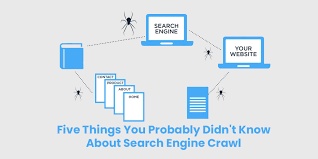Web crawlers are essential tools for gathering information from the vast expanse of the internet. They navigate websites, collect data, and help search engines index web pages. However, managing and operating web crawlers can be complex and resource-intensive. This is where Web Crawler APIs come in, offering a more streamlined and efficient way to extract data from the web.
Understanding Web Crawler APIs
Web Crawler API is interface that allows developers to programmatically interact with web crawlers. They provide a set of predefined functions and methods that enable users to control the behavior of the crawler and retrieve specific types of data from websites. By leveraging Web Crawler APIs, developers can automate the process of data extraction, saving time and resources.
How Web Crawler APIs Work
Web Crawler APIs work by sending requests to a web crawler server, which then executes the requested actions on websites. These actions can include navigating to specific URLs, extracting text or images, and storing the extracted data in a structured format. The API acts as a bridge between the user's application and the web crawler, enabling seamless communication and data exchange.
Benefits of Using Web Crawler APIs
- Efficiency: Web Crawler APIs automate the data extraction process, reducing the need for manual intervention and speeding up the collection of data.
- Accuracy: By specifying the data to be extracted, users can ensure that the extracted information is relevant and accurate.
- Scalability: Web Crawler APIs can handle large volumes of data, making them suitable for applications that require frequent and extensive data extraction.
- Customization: Users can customize the behavior of the web crawler to suit their specific requirements, such as extracting data from specific regions or languages.
- Cost-Effectiveness: Using Web Crawler APIs eliminates the need to develop and maintain custom web scraping tools, saving both time and money.
Use Cases of Web Crawler APIs
- E-Commerce: Web Crawler APIs can be used to extract product information, prices, and reviews from e-commerce websites for market analysis and price comparison.
- Content Aggregation: Media companies can use Web Crawler APIs to gather news articles, blog posts, and other content from across the web for aggregation and analysis.
- SEO Analysis: SEO professionals can use Web Crawler APIs to analyze website rankings, keyword trends, and backlink profiles for optimization purposes.
- Market Research: Researchers can use Web Crawler APIs to collect data on consumer behavior, industry trends, and market dynamics for research purposes.
Conclusion
Web Crawler APIs offer a powerful and efficient way to extract data from the web. By providing a streamlined interface for controlling web crawlers, these APIs enable developers to automate data extraction tasks and gather valuable insights from the vast amount of information available online. Whether used for e-commerce, content aggregation, SEO analysis, or market research, Web Crawler APIs are essential tools for anyone looking to harness the power of web data.


No comments yet